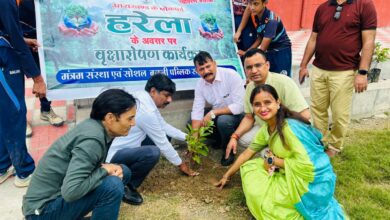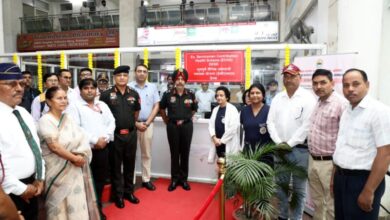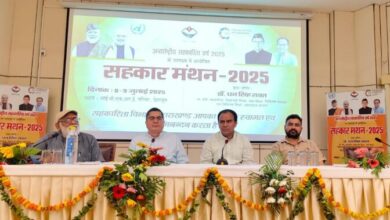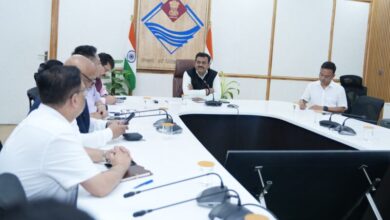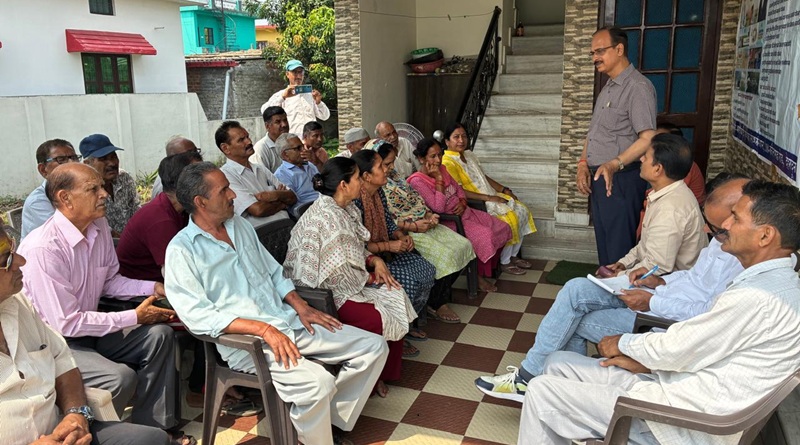
Livelihood & Women Empowerment under VKSA 2025: ICAR-IISWC Promotes Sustainable Agri-Enterprises in Uttarakhand
Dehradun, June 10, 2025:
The ICAR-Indian Institute of Soil and Water Conservation (ICAR-IISWC), Dehradun highlighted the crucial role of the Viksit Krishi Sankalp Abhiyan (VKSA) – 2025 in promoting livelihood generation, food security, and women empowerment.
Promotion of Sustainable and Eco-Based Enterprises
The institute encouraged small and marginal farmers to adopt sustainable, ecology-based enterprises, including:
-
Small-scale vegetable farming
-
Dual-purpose poultry farming using improved breeds like Kadaknath, Vanaraja, Rainbow, and Kuroiler
-
Goat rearing with breeds such as Gaddi, Beetal, and Barbari
-
Mushroom cultivation, vermi-composting, beekeeping, and biofloc-based fish farming
Emphasis was also laid on adopting integrated farming systems supported by state and central government schemes.
Opportunities in Entrepreneurship and Value Addition
For entrepreneurial farmers, production and sale of high-quality planting materials (scions) for horticulture development were highlighted. Cultivation of vegetables and flowers in polyhouses was promoted as a means to protect crops from wild animals and erratic weather.
Food processing units producing organic pickles, biscuits, and other value-added products using locally available resources were presented as viable micro-enterprises. The abundance of fodder and water during the Kharif season provides a golden opportunity for these enterprises, with bumper harvests offering long-term commercial prospects.
Also Read: Viksit Krishi Sankalp Abhiyan: Farmers Share Issues with ICAR-IISWC Scientists
Support and Capacity Building for Women Farmers
To reduce the workload of women farmers, it was proposed to establish small-scale agricultural tools and Custom Hiring Centers (CHCs) for larger machinery in village clusters.
Training programs tailored to local needs, focused on enterprise setup and management, were deemed essential. The campaign urged state and central agencies to efficiently utilize existing capacity-building resources, and to promote Self Help Groups (SHGs) and Farmer Producer Organizations (FPOs) with improved market linkages.
Grassroots Impact of the Campaign
On Day 13 of VKSA-2025, seven scientific teams led by Dr. Ambrish Kumar, Dr. Lekhchand, Engineer S. S. Shrimali, Dr. Sridhar Patra, Dr. Raman Jeet Singh, Dr. Indu Rawat, and Dr. Anupam visited 18 villages across Dehradun and Haridwar districts.
They provided location-specific advice on Kharif crop management to over 850 farmers, addressing challenges such as:
-
Crop damage due to wild animals
-
Inadequate irrigation
-
Lack of quality inputs
-
Weed infestation, pests, and diseases
-
Marketing difficulties
Village heads, progressive farmers, and youth were sensitized about VKSA objectives and how scientific agriculture can enhance food security and livelihoods.
Outreach and Coordination
Dr. M. Muruganandam, Principal Scientist, coordinated with local print and electronic media to ensure timely and widespread dissemination of agricultural technologies, crop advisories, and soil and water conservation practices.
Mission and Leadership
Running from May 29 to June 12, 2025, VKSA-2025 aims to empower farming communities through sustainable agricultural development. It is led by Dr. M. Madhu (Director) and coordinated by Dr. Bankey Bihari, Dr. M. Muruganandam, Anil Chauhan (CTO), Engineer Amit Chauhan (ACTO), Praveen Tomar (STO), and Meenakshi Pant.

